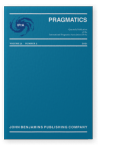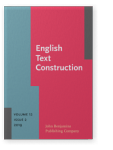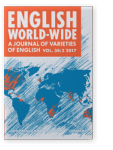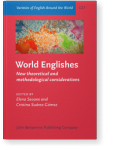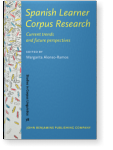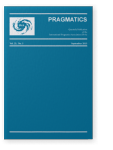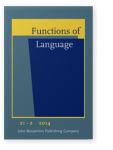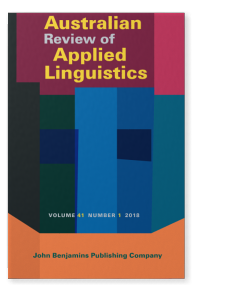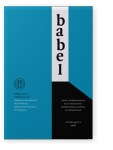Ignacio M. Palacios Martínez
List of John Benjamins publications for which Ignacio M. Palacios Martínez plays a role.
2021 Taboo vocatives in the language of London teenagers Pragmatics 31:2, pp. 250–277 | Article
This study focusses on the use and functions of so-called taboo vocatives (e.g. dickhead, you bastard, bitch) in the language of London teenagers, based on the analysis of over 500 examples extracted from COLT (The Bergen Corpus of London Teenage Language) and LEC (London English Corpus).… read more
2019 Vernon never called for me yesterday: A study of never as a marker of negation in the English of London adults and teenagers English Text Construction 12:2, pp. 290–318 | Article
This paper investigates the different readings and meanings of never in the speech of London adults and teenagers, with particular attention to cases in which this negative is equivalent to a sentential negator in the past. The analysis of a sample of over 2,000 tokens extracted from three main… read more
2017 Negative concord in the language of British adults and teenagers English World-Wide 38:2, pp. 153–180 | Article
Negative concord (NC) (e.g. I don’t know nobody in Havering) has been the focus of a considerable number of diachronic as well as sociolinguistic studies, mainly in terms of its pervasiveness in the most common varieties of English. This paper contributes to the existing literature on the topic… read more
2016
He don’t like football, does he? A corpus-based study of third person singular don’t in the language of British teenagers World Englishes: New theoretical and methodological considerations, Seoane, Elena and Cristina Suárez-Gómez (eds.), pp. 61–84 | Article
This paper compares the use of third person don’t versus doesn’t in the language of British teenagers and adults, based on the analysis of data from three comparable corpora. Findings indicate that third person don’t is used significantly more by teenagers than adults. This tendency is seen not… read more
2016 Learner Spanish on computer: The CAES ‘Corpus de Aprendices de Español’ project Spanish Learner Corpus Research: Current trends and future perspectives, Alonso-Ramos, Margarita (ed.), pp. 55–87 | Article
This chapter aims to provide a general description of the ‘Corpus de Aprendices de Español’ (CAES). It starts by discussing the contributions of Corpus Linguistics to the study of language and it next explains the emergence of learner corpora. The next section is concerned with the origin and… read more
2015 “Go up to miss thingy”. “He’s probably like a whatsit or something”.: Placeholders in focus. The differences in use between teenagers and adults in spoken English Pragmatics 25:3, pp. 425–451 | Article
In this paper we focus on some of the so-called ‘placeholders’, words that are almost empty semantically, used with multiple functions in communication and whose meaning has to be inferred by the listener (Jucker et al. 2003: 1749). This category of placeholders includes terms such as thing,… read more
2014 That’s absolutely crap, totally rubbish: The use of the intensifiers absolutely and totally in the spoken language of British adults and teenagers Functions of Language 21:2, pp. 210–237 | Article
Intensifiers in English speech have received considerable attention in the literature, due to their flexibility, ongoing changes in the system, and the grammaticalisation processes that some of them undergo. This paper looks first at differences in the use of intensifiers in the speech of adults… read more
2014 Strategies used by English and Spanish teenagers to intensify language: A contrastive corpus-based study Spanish in Context 11:2, pp. 175–201 | Article
The aim of the present paper is to investigate some of the strategies used by English and Spanish teenagers to intensify language. For this purpose, we have analysed data from three corpora of teenagers language. Our analysis shows the frequent use of really and so as intensifiers in English, yet a… read more
1998 Negation and Translation: Problems in the Translation of English Negatives into Spanish Babel 44:1, pp. 65–78 | Article
Abstract In the last few years considerable attention has been paid to the system of negation; nevertheless, the study of negative polarity has not been conducted from the perspective of translation. This paper concentrates on some of the problems that the translation of some English negatives may… read more
